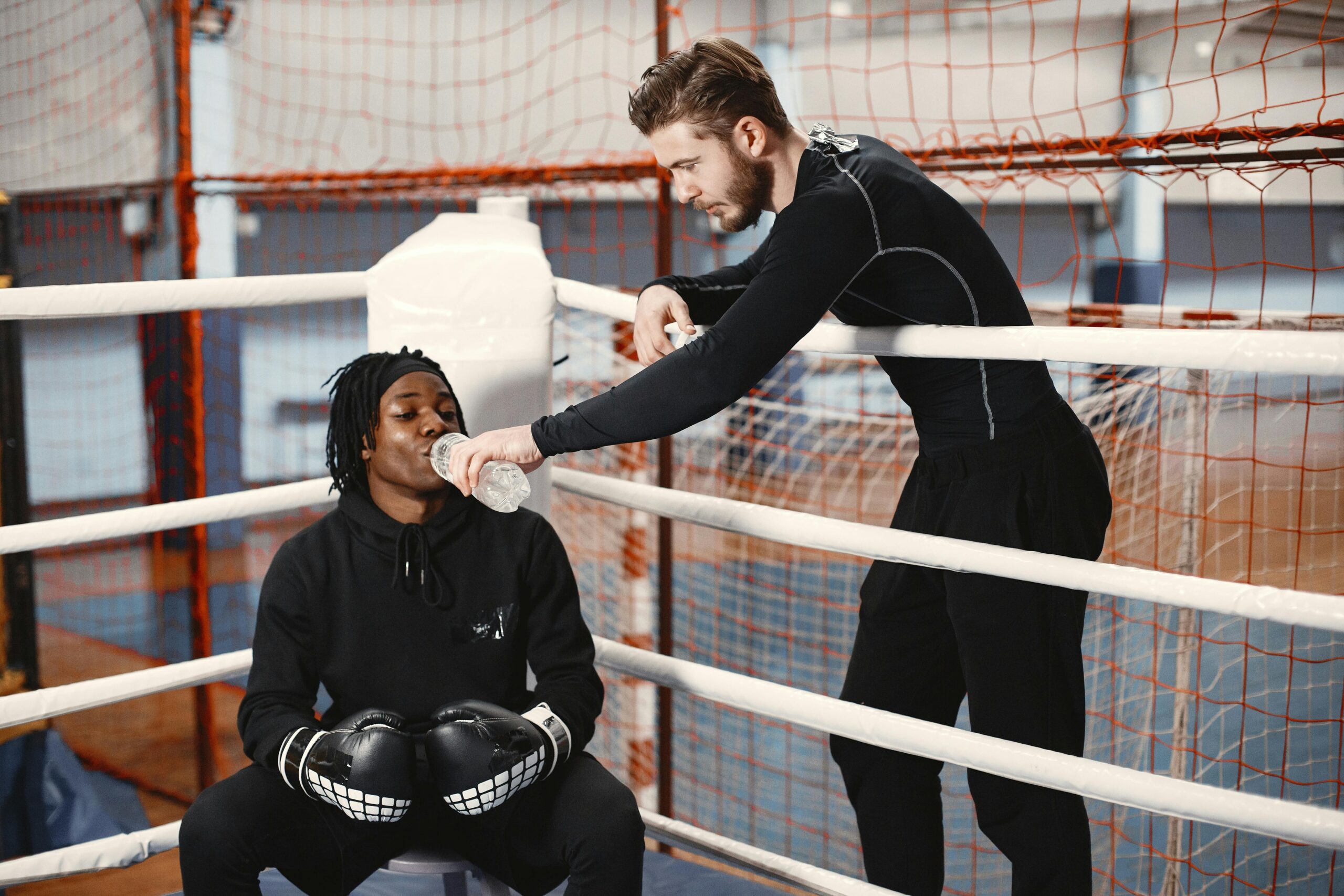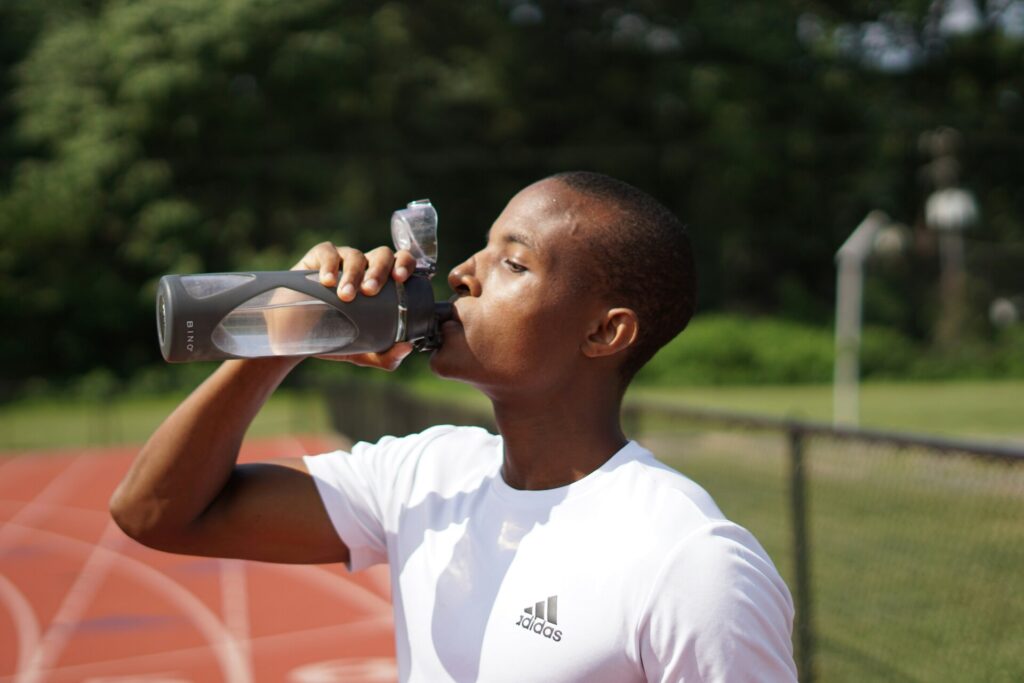Let’s be honest: When you think about levelling up your training, hydration does not exactly top the list. Most of us focus on workouts, reps, gear, and nutrition, but hydration? It’s often an afterthought. No one’s interested in hydration tips for athletes.
But here’s the thing: Staying properly hydrated can be the difference between powering through a workout and hitting a wall. Whether you are a weekend warrior, casual runner, or someone chasing new PRs at the gym, hydration plays a key role in performing, recovering, and feeling during and after training.
And no, we are not talking about just chugging a glass of water here and there. Smart hydration means knowing what to drink, when to drink it, and recognizing the signs that your body needs more support.
Why Hydration Is Crucial to Athletic Performance and Recovery
It is easy to underestimate just how much your body relies on water, not until your performance suffers. Hydration isn’t just satisfying thirst. For athletes, it plays a critical role in keeping the body functioning at its best.
Fluids help regulate body temperature (especially during high-intensity or hot-weather workouts), lubricate joints so you can move smoothly, and transport nutrients that fuel your muscles and support recovery. Every time you sweat, you are losing more than just water; you are losing the balance that keeps your system in sync.
In short, water is kind of a big deal, especially when you are pushing your body through intense training.
Even mild dehydration can take a toll. Losing just 1-2% of your body weight in fluids may not sound like much, but it is enough to trigger early fatigue, sluggish reaction times, muscle cramps, and slower post-workout recovery.
Here’s the kicker: A study about dehydration and its effects on performance shows that a 2% loss in body water can reduce athletic performance by up to 10%. That’s a major dip in output for something that’s 100% avoidable.
When your body is well-hydrated, it does not just feel better, it performs better. And if you are putting in the effort to train hard, hydration should be part of the plan, not an afterthought.
What Should Athletes Drink?
What you drink during and after training depends on how intense your workout is and how much you sweat.
Water
Plain water is your best bet for short, low-to-moderate intensity sessions. If you are working out for under an hour and not sweating buckets, you likely don’t need anything fancy. Just sip consistently before, during, and after.
Electrolyte Drinks
If you are going hard for more than 60 minutes (think long runs, hot-weather training, or high-intensity workouts), water alone might not cut it. That’s where electrolyte drinks step in, helping replenish sodium, potassium, and other minerals lost through sweat.
Look for drinks with balanced electrolytes and moderate sugar content to avoid unnecessary crashes.
Coconut Water
If you prefer something more natural, coconut water can be a great alternative. It is packed with potassium and lightly sweet, making it a refreshing post-workout option, though you have to keep in mind that it may not provide enough sodium after heavy sweating.
Protein + Hydration Blends
Post-workout recovery drinks that combine protein with hydration support (like shakes or electrolyte-protein mixes) can be a game-changer, especially if you are doing strength or endurance training. They help kickstart muscle repair while replenishing fluids.
Bonus hydration tips for athletes: There are also hydration powders and tablets that dissolve in water. They are affordable, easy to pack, and a great backup if you train outdoors or on the go. Some are loaded with sugar, though, so check the label.
How to Know If You’re Dehydrated
Even when you think you are drinking enough, dehydration can sneak up on you, especially during long or intense training days. Learning to recognize the early signs can help you adjust before it impacts your performance or recovery.
Physical signs when you are dehydrated
- Dry mouth or sticky saliva
- Headaches or lightheadedness
- Muscle cramps
- Dark yellow or amber-colored urine
- Feeling tired, heavy, or sluggish for no clear reason
Performance clues when you are dehydrated
- You feel fatigued faster than usual
- Endurance takes a dip earlier in your session
- Movements feel clunky or slow
- You notice more muscle soreness post-workout than usual
Mental red flags when you are dehydrated
- Difficulty concentrating or staying sharp
- Slower reaction time
- Brain fog or mood swings mid- or post-training
Even mild dehydration can affect not just your physical game, but also your mental clarity and coordination. And if you are already feeling thirsty? That’s your body catching up, and you are likely already behind.
Hydration Tips: Quick Self-Check for Dehydration
| Symptom | Possible Cause |
| Dark yellow urine | Dehydration |
| Dry mouth or headache | Low fluid intake |
| Dizziness or fatigue | Low blood pressure from fluid loss |
| Muscle cramps | Low sodium or potassium |
| Lack of focus or sluggish thinking | Dehydration affects brain function |
Pro Hydration Tip for Athletes: If you train regularly, keep a water bottle nearby and track your fluid intake. It is one of the easiest performance upgrades you can make.
Hydration Tips for Athletes (by Sport Type)
Different sports place different demands on your body, so your fluid strategy should match your activity. Here’s a quick breakdown:
| Sport | Hydration Tip |
| Running (Long Distance) | Long runs = Long sweat sessions. Use a hydration belt or handheld bottle and aim to replace sodium every 30 to 60 minutes, especially in hot weather. |
| Strength Training | Even if you are not dripping sweat, your body still loses fluids. Sip water throughout your session and include electrolyte drinks to replenish what’s lost. |
| HIIT (High Intensity Interval Training) | With HIIT, you are sweating fast and hard. Start pre-hydrated, sip during rest intervals if needed, and use electrolyte drinks to replenish what’s lost. |
| Team Sports | Games can last over an hour and include bursts of high output. Drink frequently during timeouts or breaks, and if the match runs long, go for electrolytes. |
| Swimming | Just because you are in water does not mean you are not losing it. Swimmers sweat, too, especially in heated pools. Hydrate before and after sessions to stay balanced. |
Customizing your hydration strategy to your sport helps you stay organized, focused, and less prone to fatigue. No matter what your game looks like!
Hydration Myths Athletes Should Avoid
There’s a lot of outdated advice floating around when it comes to hydration. And for beginner athletes, falling for these can do more harm than good. Let’s clear a few things up:
Myth #1: You only need water when you are thirsty.
Thirst is a late signal. By the time you feel it, you are already playing catch-up. Hydrating before you feel thirsty helps you stay ahead of fatigue and maintain performance.
Myth #2: Drinking a lot before your workout is enough.
Flooding your system right before training isn’t the move. Your body needs time to absorb fluids. This is why spacing out your intake pre-, during, and post-workout matters more than chugging water at the last minute.
Myth #3: Sports drinks are always better than water.
Not always. Many store-bought sports drinks are loaded with sugar and may not offer the right balance of electrolytes for your needs. Water works great for most short sessions. Know when to level up, but don’t overdo it.
Myth #4: Cold water is bad for your body.
Nope. Cold water is perfectly fine, and many even help cool your core during hot workouts. The temperature doesn’t reduce the benefits, so drink what feels best for you.
Falling for these myths is one of the most common hydration mistakes beginner athletes make. Stick to the basics, stay informed, and hydrate smarter.
Hydration is an Athlete’s Performance Tool
Hydration is not just a wellness trend. It is one of the simplest ways to support better performance, sharper focus, and faster recovery. Whether you are chasing strength gains, endurance, or just feeling your best during workouts, staying hydrated gives you an edge.
Like stretching or proper nutrition, hydration works best when built into your routine and not left as an afterthought. The more consistent you are, the more your body will thank you for it.
If you train in different environments (heat, cold, indoors, outdoors), your hydration needs shift too. You have to fine-tune your hydration strategies for every workout environment.
Stay sharp. Stay hydrated. Keep pushing forward.
FAQs Related to Hydration Tips for Athletes
Commonly asked questions…


